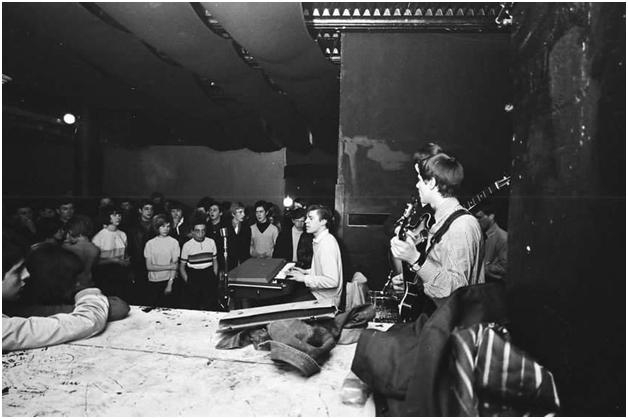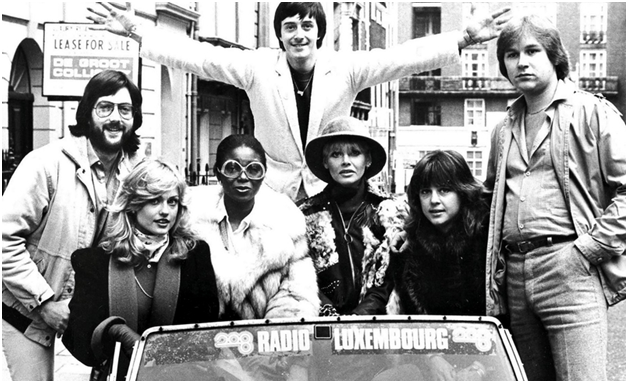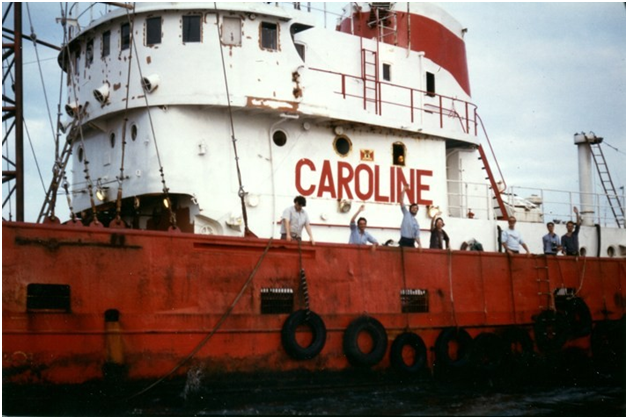The ship that launched a thousand hits! – How did this “rebel rock businessman” revolutionize British radio in the 1960s? [Monday: Marketing Marvels]

Miles Everson’s Business Builder Daily speaks to the heart of what great marketers, business leaders, and other professionals need to succeed in advertising, communications, managing their investments, career strategy, and more.
A Note from Miles Everson:
Happy Monday, everyone! How was your weekend?
I hope you’re ready to kickstart another awesome work week ahead.
Let’s start this day with inspiration from a “Marketing Marvel”―an outstanding person either in the field of marketing, communications, business, or others―who’s literally made history in the entertainment industry.
Every Monday, I feature these kinds of people because I believe it’s good for us to gain motivation from them by learning about their work, experiences, and insights.
In today’s article, we’ll talk about the pioneer of pop and “pirate” radio stations in the UK.
Continue reading to learn valuable business lessons from this iconic Marketing Marvel.
Miles Everson
CEO, MBO Partners
Chairman of the Advisory Board, The I Institute
Marketing Marvels
Back in the 1960s in the UK, people were used to having and listening to just one supreme radio station: The British Broadcasting Corporation (BBC).
No one dared to challenge that monopoly.
Until…
A pirate radio station emerged.
[Pirate Radio Station – A radio station that broadcasts audio content outside a national boundary and uses a transmission format that’s different from a particular country’s standard.]
In the UK, the term also referred to the nature of offshore radio stations that operated on ships or marine platforms.
Who pioneered the idea of pirate radio stations?
Ronan O’Rahilly!

Photo from bbc.co.uk
Born on May 21, 1940, O’Rahilly was an Irish “rebel rock businessman” best known for the pirate radio station, Radio Caroline.
His family name was prominent in Ireland not only because they were wealthy but also because his grandfather was a leader in the Easter Rising, an armed insurrection during the Easter week of April 1916, and was an important figure in the quest for the independence of the country.
Life Before Radio Caroline
O’Rahilly described himself as a “rebel who had been expelled from school 7 times” before moving to London at the age of 17.
When he got to London, he started training in method acting―a technique that performers employ to emotionally empathize with the characters they are portraying. He also frequented nightclubs in London and became acquainted with some entertainment industry figures such as filmmaker Giorgio Gomelsky and TV host Simon Dee.
These new connections encouraged O’Rahilly to open his own nightclub, The Scene, where some of the famous musicians in the 1960s such as The Rolling Stones, Zoot Money, and Chris Farlowe performed.

Photo from Soul Source
What’s more?
Aside from being a businessman, O’Rahilly became a manager later on in his career. He managed various artists such as Australian actor George Lazenby, who played James Bond in one film, and musicians Alexis Korner and Georgie Fame.
This was where the Irish entrepreneur’s inclination to the music industry was further developed.
The Beginning of the Ship that Launched a Thousand “Hits”
It was in 1964 when the sound of pop music was changing in the UK. A lot of people, especially the youth, were welcoming new genres and different artists.
… but there was one concern: Pop music was only played an hour per week by the BBC through its Saturday morning’s Light Programme.
An hour per week?! That wouldn’t be enough to enjoy listening to all the hit songs on the radio!
That’s why during that time, Radio Luxembourg―located in the Grand Duchy of Luxembourg―served as the only refuge for those seeking new, revolutionary music.
Note: Radio Luxembourg was a separate radio station that operated from a different European country.

Photo from Nostalgia Central
Influenced by the offshore radio station’s strategy, “rebel rock businessman” O’Rahilly launched his own radio station outside British territorial waters. He bought a disused Danish ferry for GBP 20,000, which is about GBP 350,000 or USD 450,000 in today’s currency.
He named that ferry, Radio Caroline.

Photo from HistoryRevealed.com
Another part of O’Rahilly’s decision to launch the pirate radio station was his frustration at how difficult it was to get his artists an airplay on official radio stations.
Why?
Those stations only accepted established musicians such as Frank Sinatra and Perry Como!
Radio Caroline began broadcasting on March 28, 1964… and as opposed to BBC’s pop music broadcasting of only an hour per week, the pirate radio station aired pop music from 6:00 a.m. to 6:00 p.m. every day of the week.
The first track that the pirate radio station played was The Rolling Stone’s version of the song, “Not Fade Away,” which has the opening line, “I’m gonna tell you how it’s gonna be.”
This line was O’Rahilly’s shot at the BBC bosses, challenging them and their radio monopoly to eventually “get along with it.”
No wonder the entertainment industry described him as a “rebel rock businessman” during his time!
Through Radio Caroline, O’Rahilly drew an audience of 25 million teenagers and “postwar boom babies.” London-based national newspaper The Times acknowledged him as “the godfather of the pirate radio stations, which revolutionized British broadcasting in the 1960s.”
One of the interesting things about his contributions in the music and entertainment industry?
The success of Radio Caroline led to BBC’s launch of Radio 1, Britain’s first legal pop music station in 1967!
A round of applause for O’Rahilly and his Radio Caroline team!
*Clap clap clap*
As business owners and leaders, managers, independent contractors, and marketers, what can you learn from O’Rahilly’s story?
Use your wit and resources to achieve your goals. This will enable you to turn your plans into actions and get to where you want to be.
Think about O’Rahilly’s strategy: Even when official radio stations were closing their doors for the artists he managed, he didn’t give up. He knew there was another way around that challenge.
… and so he created Radio Caroline.
Look at where that got him―later on, official radio stations, particularly the BBC, ended up being influenced by his pirate radio station and the type of music they played.
Impressive, right?
Another lesson you can learn from today’s Marketing Marvel is that making a wave in your industry requires effort, persistence, creativity, strategy, and knowing the gap that your brand can fill. Fulfilling your target market’s unmet needs is one of the keys to business success.
Be inspired by O’Rahilly’s cleverness, wit, and resourcefulness!
Whether you’re just starting your business or you’ve already been in the industry for several years now, your determination to achieve your goals, coupled with the right measures, will help you make your brand succeed.
… and by “succeed,” we mean grabbing every opportunity that there is to make your brand BIG―as big as the international waters where Radio Caroline was set.
Have a great start to your work week!
(This article is from The Business Builder Daily, a newsletter by The I Institute in collaboration with MBO Partners.)
About The Dynamic Marketing Communiqué’s
“Monday Marketing Marvels”
Too often, industry experts and the marketing press sing the praises of some brand or company’s marketing strategy.
… only for the audience to later find out that its product was a flop, or worse, that the brand or company went bankrupt.
The true ROI in marketing can’t be separated from the business as a whole.
What good is a marketing case study if one can’t prove that the company’s efforts actually paid off?
At the end of the day, either the entire business is successful or it isn’t. And the roles of marketing and communication are always paramount to that success.
Every Monday, we publish a case study that highlights the world’s greatest marketing strategies, marketers, and communicators.
However, the difference between our articles and the numerous ones out there is that we will always make certain that the firm really did generate and demonstrate earning power worthy of study in the first place (compliments of Valens Research’s finance group) in keeping with a person’s leadership skills in the area of marketing and/or communication.
We’ll also study the greatest marketing fails and analyze what they did wrong, or what they needed to improve. We all make our mistakes, but better we learn from others’ mistakes—and earlier, rather than later.
Hope you found this week’s marketing marvel interesting and helpful.
Stay tuned for next week’s Monday Marketing Marvels!
Cheers,
Kyle Yu
Head of Marketing
Valens Dynamic Marketing Capabilities
Powered by Valens Research
www.valens-research.com




